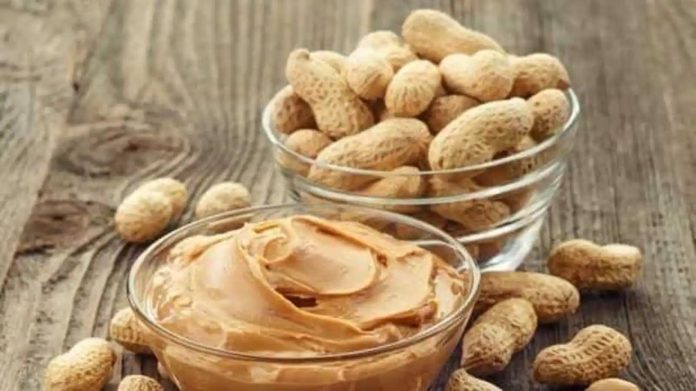Brenda Goodman, MA from WebMD Health News reported, that there has been a the rise in peanut butter allergies over the last 10 years.This health concern has led to new studies on how to combat these peanut butter allergies.The common thought has been not to feed babies peanut butter. However, now the new study suggests feeding your baby peanut butter before their first birthday should be done so that they do not contract a peanut butter allergy.The study is published in the New England Journal of Medicine, and it was presented at the annual meeting of the American Academy of Allergy, Asthma and Immunology in Houston. “It found that among children at high risk for getting peanut allergies, eating peanut snacks by 11 months of age and continuing to eat them at least three times a week until age 5 cut their chances of becoming allergic by more than 80% compared to kids who avoided peanuts. Those at high risk were already allergic to egg, they had the skin condition eczema, or both.” The researchers found that only 3 percent of the babies who ate peanut butter before their first birthday developed a peanut butter allergy while 17 percent did not.The researchers are finding this astonishing However, 3 and 17 percent does not say much to me. The good that is coming out of this study to me is the fact the researchers may now concentrate more on why peanut butter allergies happen in the first place.“Nuts are the main reason people get a life-threatening problem called anaphylaxis.” In 2002 the American Academy of Pediatrics make guidelines to avoid allergies and not feed their high-risk children nuts, eggs, and dairy milk before they were two to three years old. However, not much research was presented for this time frame.
A UK doctor found that delaying the introduction of peanuts to young children in the UK and America, put them more at risk for the allergy than children in Israel. “In Israel, a first food for many babies is a snack called Bamba, corn puffs coated with peanut powder — essentially a cheese doodle made with peanuts…Dr. Lack believes the early feeding works because of something he calls the dual allergy theory; where babies absorb peanut butter through the skin by handling the snack and they also digest it. He found through the study, the results also pointed to the fact that babies who had been exposed to peanut butter at a young age were less likely to develop the allergy.
For people with allergiesA new skin patch called Viaskin seems promising to give people who have allergies the ability to tolerate a little bit of peanut butter on the proviso that they wear the patch for at least a year. “Certain skin cells, called Langerhans cells, pick up the protein and take it to the lymph nodes, where it teaches the immune system to ignore the protein.”
A caution for parents
Parents do have to be cautioned about feeding their baby peanut butter especially if they don’t know if their child is at high risk or not. They still should consult with their pediatrician. Concerned doctors will take an allergy test to determine if it is safe for the baby to be exposed to peanut butter at a young age.








